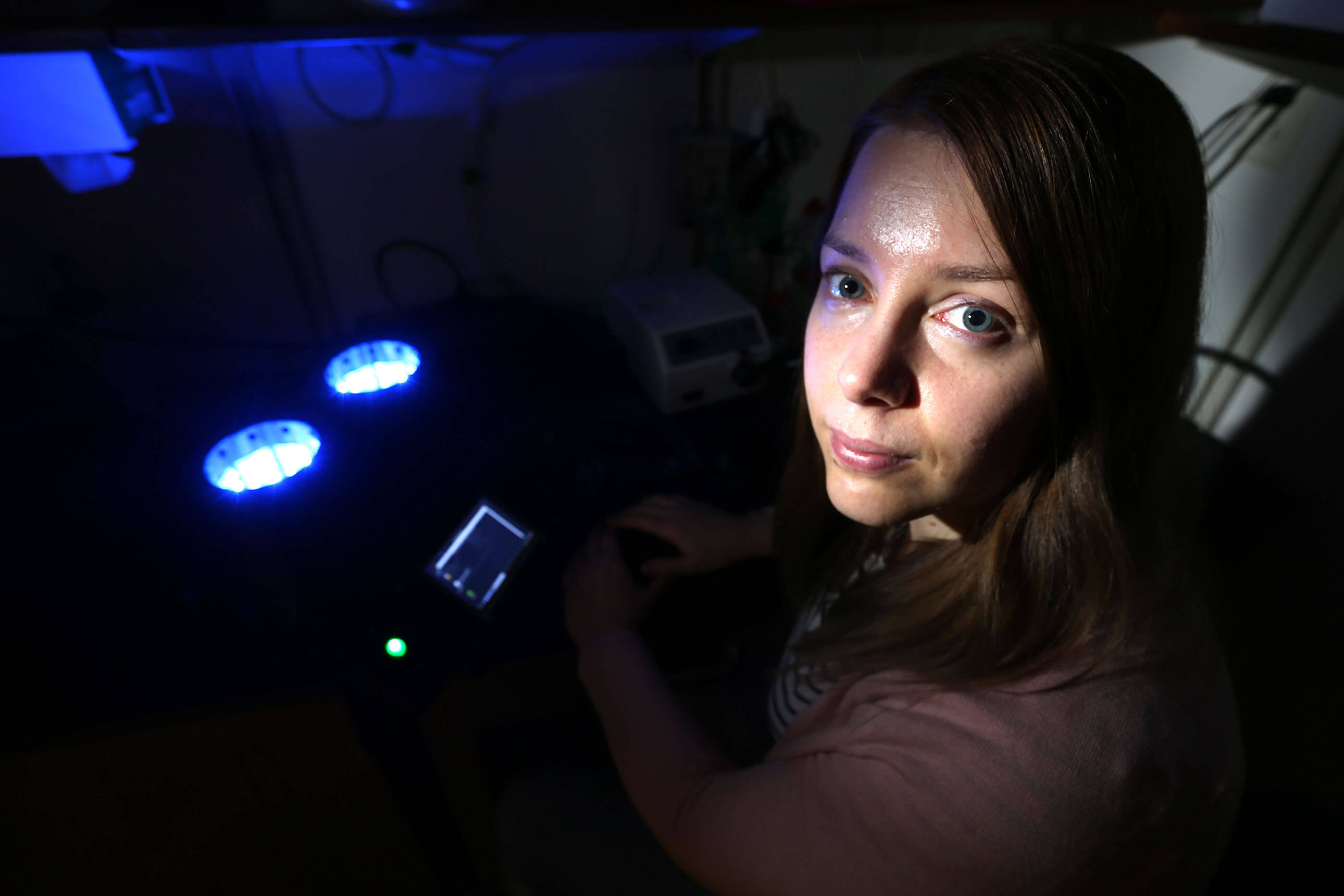For decades, scientists have known that blue light will make fruit flies go blind, but it wasn’t clear why. Now, a Purdue University study has found how this light kills cells in the flies’ eyes, and that could prove a useful model for understanding human ocular diseases such as macular degeneration.
Vikki Weake, assistant professor in Purdue’s Department of Biochemistry, studies aging in the eye and the genetic mechanisms that lead to vision loss as people age. Working with Donald Ready, a professor in Purdue’s Department of Biological Sciences, and Daniel Leon-Salas, an associate professor in the School of Engineering Technology, Weake led a team that compared older fruit flies susceptible to vision loss when exposed to blue light with young flies that are immune to the effects of that light.
“When you put older flies in the presence of really strong blue light, you basically overload the neurons and the photoreceptor cells in their eyes die,” said Weake, whose findings were published in the journal npj Aging and Mechanisms of Disease, a partner journal of Nature. “But this doesn’t have to be. There are natural conditions that confer resilience as we see with young flies.”
Weake’s team found that retinal degeneration in the flies strongly correlated with lipid peroxidation, oxidative damage caused to lipids by reactive oxygen species. Young flies showed no signs of lipid peroxidation.
“Cells in the eye are high in polyunsaturated fatty acids, and that makes those cells highly sensitive to this type of damage,” Weake said. “That makes this a very dangerous environment.”
The researchers could reduce the lipid peroxidation by feeding strong antioxidants to the flies. And they were also able to stop the process entirely by overexpressing a protein called Cytochrome b5, which transports electrons to enzymes within cells. The authors propose that Cytochrome b5 stimulates the activity of enzymes that detoxify reactive oxygen species.
“Cytochrome b5 overexpression rescues the blue light-induced retinal degeneration,” Weake said. “It strongly suggests that the cause of cell death in this blue light model is the lipid peroxidation. Reducing levels of other reactive oxygen species such as hydrogen peroxide, didn’t show such a strong effect.”
Weake believes fruit flies offer a model for studying degenerative ocular diseases in humans, including determining how genetic therapies or drugs could slow or stop vision loss. While blue light affects fly and human eyes differently, lipid peroxidation is believed to play an important contributory role in the development of human retinal diseases such as age-related macular degeneration.
Weake’s research will continue to explore how blue light affects gene regulation in photoreceptor cells to identify pathways that might be used to help these cells to survive under stressful light conditions, or under more long-term chronic stress during aging.
The Ralph W. and Grace M. Showalter Research Trust, the National Institutes of Health and the Purdue University Center for Cancer Research funded the study.






